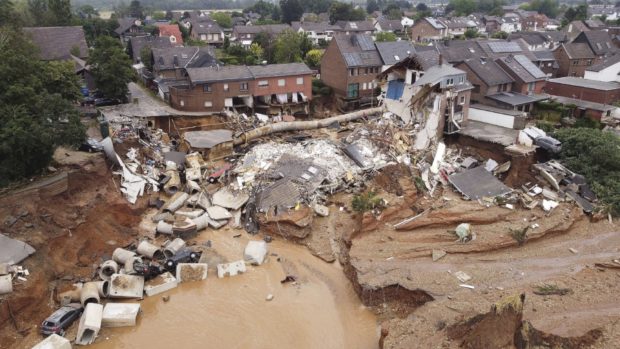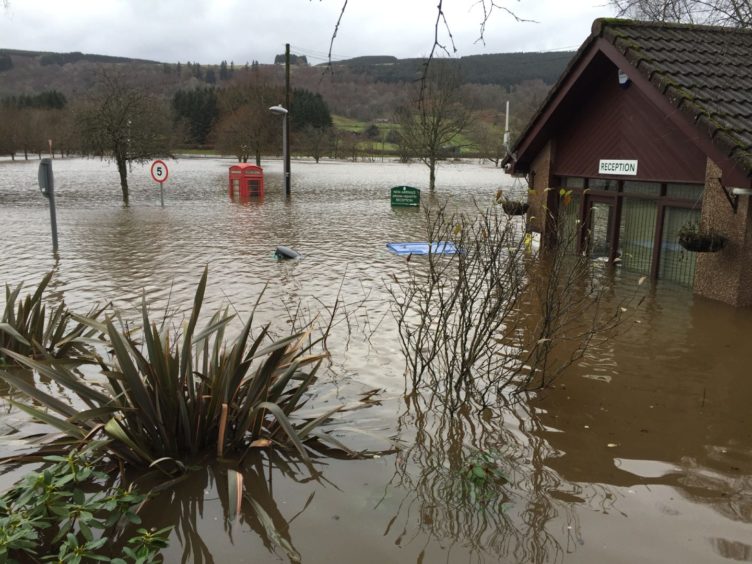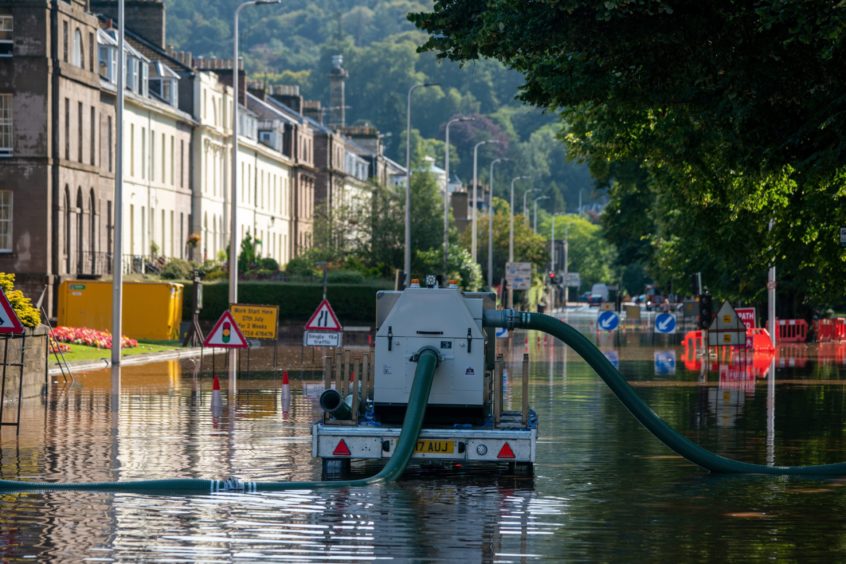Devastating floods which have claimed the lives of nearly 200 people in western Europe are a grim ‘reminder’ the same could happen in Scotland.
The Scottish Environment Protection Agency (Sepa), which has responsibility for issuing flood warnings in Scotland, said lessons can be learned from flooding events which have decimated communities across Germany, Belgium and the Netherlands in recent days.
Many in western Europe were not prepared for the severity of the floods.
But officials in the hardest hit areas defended flood alert procedures.
However, German economy minister Peter Altmaier told the Bild newspaper lessons would be learned from the tragic events.
Scotland’s flood alerts ‘continuously reviewed’
Sepa works with the Met Office to forecast flood risk and issue alerts to the public.
The agency’s flood unit manager Pascal Lardet said: “We continuously review how we deliver this life saving service, learning from events both in Scotland and elsewhere across the world and monitor our performance to improve our ability to model and forecast potential flood events earlier and more accurately.
“This enables us to help Scotland better prepare for future flooding.
“Watching the flooding unfolding in Germany, Belgium and the Netherlands has been shocking. Our thoughts at Sepa are with all of the communities affected and the emergency responders.”
Mr Lardet urged members of the public to sign up to Sepa’s Floodline, which issues free local flood warnings.
“Seeing flooding happening elsewhere should act as a reminder to people in Scotland to be flood aware and to take actions now that can help them to stay safe during a flood event,” he said.
“Flooding can have a devastating impact on people’s lives. It is disruptive and dangerous.”
Places previously safe from flooding will be at risk in the future
Professor Sir Ian Boyd of St Andrews University was formerly the UK Government’s chief scientific adviser.
He said it was not impossible that Scotland could see floods on a similar scale to the devastating scenes in western Europe.
“The UK had some serious floods of this type in December 2015,” said Sir Ian.
“The frequency and severity of rainfall is likely to increase in future. Many places which seemed secure from flooding in the past will become vulnerable.”
Towards the end of 2015, the UK suffered widespread flooding when Storm Desmond arrived, followed a couple of weeks later by Storm Frank
Years later, communities still recovering
Some Scottish communities are still recovering from the damage Storm Frank wreaked on homes and businesses.
Sir Ian said the Earth’s changing climate will make life for its inhabitants “different and more challenging”.
‘Never too late’ to act on climate change
But he believes there is still time to take action on carbon emissions, which are already estimated to have caused global temperature to increase by 1C above pre-industrial levels.
“It is never too late,” he said.
“Many of the effects of climate change are not reversible on meaningful time scales. But if we do not start to deal with them with much greater determination then the outcomes will be worse.
“We need to become more resilient and this means we need to acknowledge the changes going on and plan for a future which will be different and more challenging.
He added: “Not everything bad that happens is caused by climate change. But climate change often makes them worse than they would have been.
“Climate change tends to increase the frequency and severity of challenging weather. People who deny this is happening are slowing our capacity to adapt and to become more resilient.”
Extreme weather as seen during floods in Europe a ‘symptom’ of changes in the atmosphere
Alastair Dawson is an Honorary Professor of Physical Geography at Dundee University.
He said news reports about flooding were “part of a trend towards more extremes of weather”.
He said the behaviour of the jet stream was changing as global temperatures creeped up.
“What we’re looking at… are the symptoms. A large part of the cause is sitting way above our heads about eight or 10 kilometres up in the atmosphere.”
Arctic warming causing ‘sluggish’ jet stream

Professor Dawson said it is not disputed that Arctic temperatures are rising.
“The contrast in temperature between the high latitudes and down here in the middle latitudes has slackened off,” he said.
“Many scientists believe that because the Arctic is warming like this, this is affecting the jet stream.”
He said the jet stream was currently “sluggish”.
“Because it’s sluggish, the weather systems down here at the lower levels of the atmosphere tend to get stuck in position for longer.
“As the years move forward we can expect longer periods of dry weather. And, in winter time, more extreme cold. Also, periods of more intense rainfall.
“If you have a cyclone bringing rainfall, in a situation like that, then that cyclone gets stuck. That’s what happened in Germany.”


